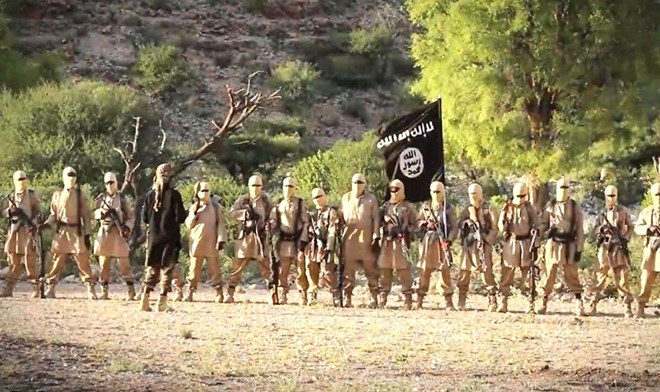
Friday January 27, 2023
By Eric Schmitt and Helene Cooper

WASHINGTON — U.S. Special Operations commandos killed a senior leader of the Islamic State militant group in an early-morning helicopter raid in a remote area of northern Somalia on Thursday, U.S. officials said.
The Pentagon identified the leader as Bilal al-Sudani. U.S. officials said he was operating in Somalia but that his influence as one of the terrorist group’s top financial operatives extended across Africa, into Europe and even to the Islamic State branch in Afghanistan that carried out the August 2021 bombing at Kabul’s international airport that killed 13 American service members.
In a statement Thursday, Defense Secretary Lloyd Austin said al-Sudani “was responsible for fostering the growing presence of ISIS in Africa and for funding the group’s operations worldwide, including in Afghanistan.”
advertisements
Biden administration officials said no civilians were injured or killed in the raid. They also said none of the U.S. troops involved were hurt, although one was bitten by a dog they had brought with them.During a call with reporters Thursday afternoon, a senior administration official described al-Sudani as “a key operative and facilitator for ISIS’ global network.” The official said the operative was killed along with 10 other Sudanese Islamic State associates.
The raid took place in a remote mountainous cave complex in the Puntland region of northern Somalia, months after U.S. spy networks detected al-Sudani’s hidden headquarters and monitored the location to study his movements.
The senior administration official said that the Special Operations troops had been prepared to capture al-Sudani but that the response from his associates when American troops arrived at their cave complex “resulted in his death.”
Nonetheless, based on previous raids, the commandos almost certainly scooped up laptop computers and hard drives, cellphones and other information from al-Sudani’s hideout that could provide tips for future counterterrorism operations.
The fact that the Pentagon sent commandos to kill or capture al-Sudani — a decision that required President Joe Biden’s approval this week — rather than using a less-risky drone operation indicated his significance.
One senior administration official said there was no one else in the Islamic State group’s global constellation of operatives who rivaled al-Sudani in his ability to receive and distribute illicit funds — as much as hundreds of thousands of dollars at any given time — to far-flung Islamic State affiliates on at least three continents through a network of clandestine contacts he built over more than a decade.
In another sign of al-Sudani’s importance, the military built a mock-up of his mountainous cave complex to allow commandos to rehearse their secret mission — just as Navy SEAL Team 6 forces did before the raid that killed Osama bin Laden in 2011 in Pakistan.
U.S. officials did not reveal which Special Operations unit carried out Thursday’s raid, but SEAL Team 6 has historically conducted the most sensitive counterterrorism missions in Somalia.
Biden redeployed about 450 U.S. troops to Somalia last year, reversing former President Donald Trump’s withdrawal in January 2021. But those forces only provide training to Somali forces and do not conduct counterterrorism operations, Pentagon officials said.
Somalia is better known as a harbor for al-Shabab, the terrorist group linked to al-Qaida, than for the Islamic State. But Islamic State attacks have increased across Africa.
The raid represents the latest in a string of setbacks this year for the Islamic State group and its core leadership in Iraq and Syria, the most serious since the end of the jihadis’ so-called caliphate nearly four years ago. In late November, the militant group announced that its overall leader, whose identity has remained shrouded in mystery, had been killed in battle in Syria less than nine months after taking charge of the terrorist organization.
Outside the Middle East, the group has experienced mixed success. Its branch in Afghanistan is locked in a stalemate with the Taliban government. But Islamic State fighters have struck highly symbolic targets in Afghanistan, including Russian and Chinese interests.
Islamic State fighters, along with al-Qaida cells, are gaining strength in West Africa, with the violence now threatening countries including Ghana, Togo and Benin.
At its peak, the Islamic State group ruled a self-proclaimed caliphate the size of Britain that spanned the border between Syria and Iraq and boasted tens of thousands of fighters from around the globe. Its extremist vision of eternal combat between its forces and anyone who opposed them inspired deadly attacks in Paris, Brussels, Istanbul, Berlin, Baghdad and other major cities.
But an international coalition led by the United States worked with local forces in Iraq and Syria to fight it, finally pushing it from its last patch of territory in eastern Syria in March 2019.